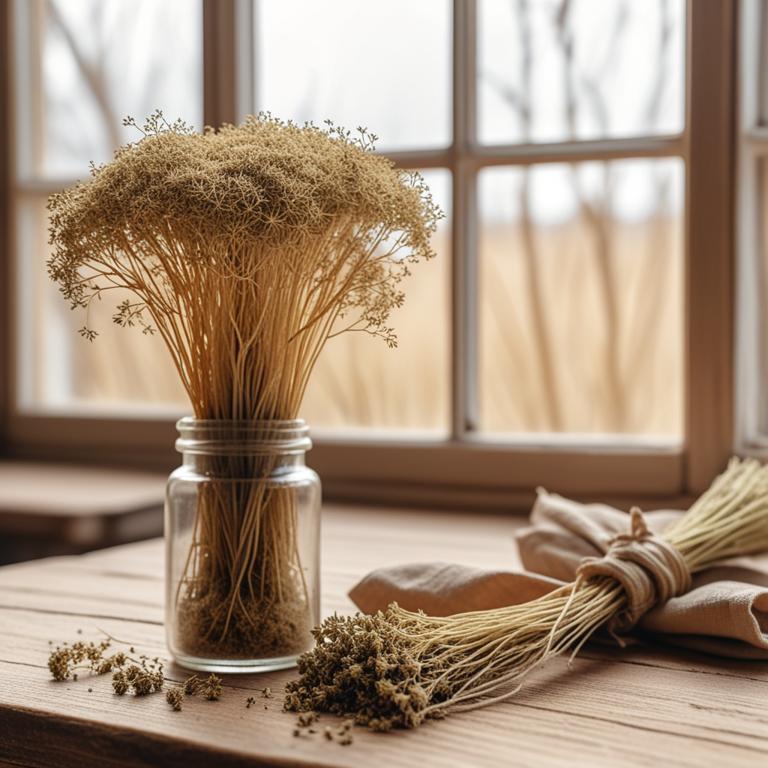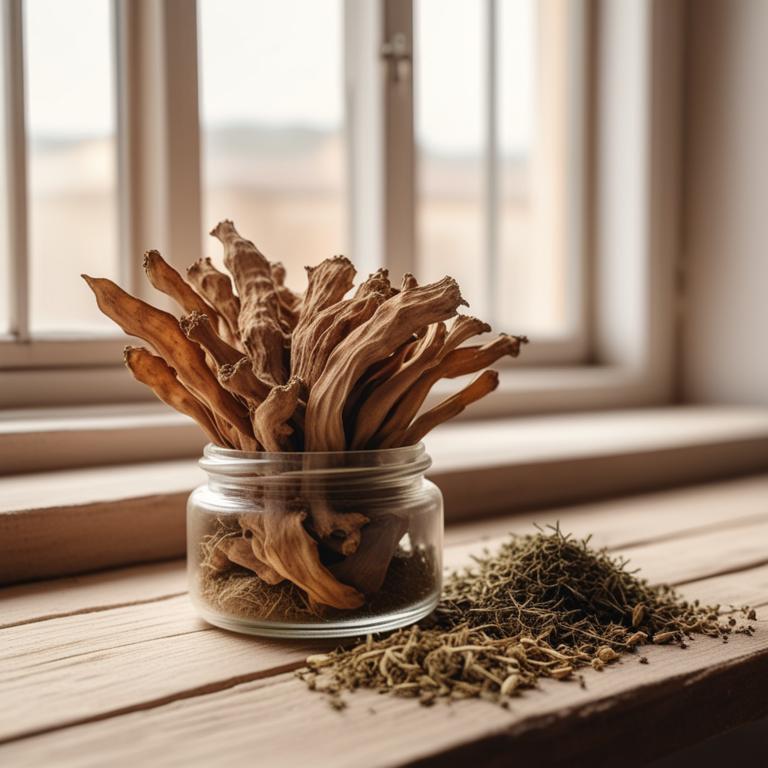Updated: Dec 1, 2024
Overeating: The Causes and Medicinal Herbs for a Healthier You

Overeating is when you consume more food than your body needs, which can lead to weight gain, low energy, and digestive problems.
It can also affect your self-esteem and overall well-being. But what causes overeating?. Stress, emotional eating, and poor eating habits are some common reasons. When we're stressed or bored, we often turn to food for comfort, leading to overeating. Fortunately, herbal remedies can help.
Certain plants have natural properties that can aid in digestion, calm the mind, and reduce hunger. For example, peppermint can ease digestive issues, while licorice root can calm the nervous system. Ginger is another herb that can help with digestion and reduce nausea. These herbs can be prepared in various ways, such as teas, capsules, or infusions. Drinking peppermint tea after a meal can help with digestion, while ginger tea can aid in reducing hunger. You can also add these herbs to your meals or take them as supplements.
By incorporating these herbal remedies into your daily routine, you may find it easier to manage overeating and maintain a healthy relationship with food.
Table of Contents
What triggers the behavior of overeating?
The main causes of overeating are a mix of physical, emotional, and social factors.
Hunger is one of the primary causes, but it's not just about feeling hungry. Sometimes, we eat more than we need because our bodies are wired to store fat for survival. This can lead to overeating, especially if we eat quickly or don't pay attention to our body's signals. Stress is another major cause of overeating. When we're under pressure, our body releases stress hormones like cortisol, which can increase our appetite and make us crave comfort foods. This can lead to a vicious cycle of eating to cope with stress, only to feel more stressed and anxious about our weight. Social pressure is also a significant factor, especially in social situations. We may feel obligated to try new foods or eat more than we need because of social norms or expectations.
This can be especially challenging if we're around people who eat more than we do or pressure us to try certain foods. Sensory triggers can also lead to overeating. We may be drawn to the smell, taste, or texture of certain foods, which can make it hard to stop eating. This is especially true for foods that are high in fat, sugar, or salt, which can activate our brain's reward centers and make us feel good. Food addiction is a real issue for many people. Some foods, especially those high in sugar or fat, can activate our brain's addiction centers, leading to compulsive eating and overeating. This can be especially challenging to overcome because it's not just about willpower – it's about changing our brain chemistry. Emotions also play a big role in overeating. We may eat to cope with feelings of sadness, boredom, or anxiety.
This can be especially true for women, who are more likely to use food as a way to manage their emotions.
What are the advantages of using herbs to address overeating?
Using herbs for overeating can be a helpful approach for many people.
One of the main benefits is that these herbs can help reduce appetite and cravings for unhealthy foods. This can make it easier to stick to a healthy diet and avoid overindulging in favorite treats.
Some herbs also have a natural ability to speed up digestion, which can help alleviate feelings of bloating and discomfort after eating too much. Additionally, certain herbs have been shown to have a positive impact on stress levels, which can often contribute to overeating. By reducing stress and anxiety, these herbs can help people develop a healthier relationship with food and their bodies.
Furthermore, using herbs for overeating can be a gentle and non-invasive approach, making it a good option for those who prefer not to rely on medications or other treatments.
What are the main medicinal herbs that help with overeating?
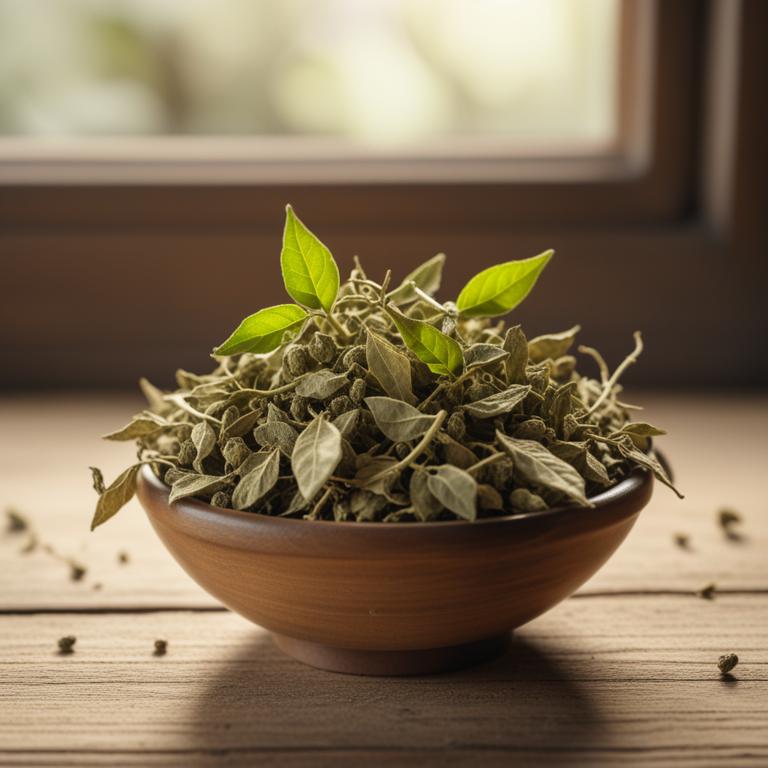
If you've overeaten, herbs can help.
Gymnema sylvestre is one of them. It helps your body get rid of excess sugar from your system by blocking sugar receptors on your tongue. This way, you won't crave sweets anymore. Ginkgo biloba is another herb that can aid digestion after overeating. It helps blood flow to your stomach, promoting digestion and reducing discomfort.
Curcuma longa, commonly known as turmeric, has a compound called curcumin that reduces inflammation. Overeating can lead to inflammation, which can cause pain and discomfort. Curcumin in turmeric helps alleviate this. Zingiber officinale, or ginger, is well-known for its digestive benefits. It helps move food through your digestive system, preventing it from staying in your stomach for too long and causing discomfort. Salvia miltiorrhiza, also known as Chinese sage, helps your body recover from overeating by improving blood flow and reducing inflammation.
It also helps lower blood pressure, which can be a concern after overeating.
What are the commonly prescribed herbal preparations for overeating?

If you've overeaten, herbal preparations can help.
A tincture is a strong liquid extract that can be taken in small amounts. It's good for digestive issues because it's easily absorbed by the body. Decoction is a liquid made by boiling herbs in water for a longer time. This helps to break down the herbs' compounds and makes them more effective. It's great for stomach problems because it's strong and can soothe the digestive system.
Herbal tea is a gentle way to calm your stomach. It's made by steeping herbs in hot water, which makes the compounds more accessible to the body. Infusion is similar to tea, but it's made with cold water. This method helps to preserve the herbs' delicate compounds, making it a good choice for sensitive stomachs. Capsules are another way to take herbs. They contain a powdered herb that's been processed to be easily absorbed by the body.
They're convenient and can be taken on the go.
Additional Resources:
Should you avoid certain herbs if you have a tendency to overeat?
If you tend to overeat, it's a good idea to limit your use of certain herbs.
Cassia auriculata, for example, can stimulate your appetite, making it harder to stop eating. Schisandra chinensis, on the other hand, is known to increase your energy and drive, which can lead to overindulgence.
Gardenia jasminoides can have a similar effect, as it's believed to boost your mood and make you feel more enthusiastic about food. Astragalus membranaceus, while generally considered safe, can cause an increase in hunger in some people. Ammi majus, with its sweet and slightly bitter taste, can also stimulate your appetite and make you more likely to overeat.
It's worth noting that these herbs may not cause problems for everyone, but if you're already prone to overeating, it's best to use them in moderation or avoid them altogether.
FAQ
Are there any specific herbs that can prevent overeating?
Some herbs may help reduce overeating.
For example, peppermint can slow down eating, while ginger can ease hunger and nausea. Cinnamon and cayenne pepper can also help control appetite by making you feel fuller faster.
These herbs work by slowing down digestion and reducing hunger signals in the brain.
Is it safe to use herbal remedies for overeating during pregnancy?
When it comes to using herbal remedies for overeating during pregnancy, it's best to be cautious.
Some herbs can affect the baby's growth or cause allergic reactions. If you're considering trying herbal remedies, choose ones that are known to be safe during pregnancy and use them in small amounts.
It's always better to err on the side of caution.
Are there any herbs that can reduce the frequency of overeating?
Ginseng and peppermint are herbs that may help reduce overeating.
Ginseng is believed to increase feelings of fullness, while peppermint can slow down eating by improving digestion. Some people find that taking these herbs before meals helps them feel more satisfied and eat less.
Their effects are still being studied, but they show promise.
Can i combine different herbal remedies for overeating?
You can combine different herbal remedies for overeating, but be careful.
Some herbs interact with each other. For example, combining ginger and peppermint might calm your stomach, but adding licorice root could raise blood pressure.
Start with small amounts and observe how your body reacts before adding more herbs.
Related Articles

Stomach Cramps: Effective Herbal Preparations and Medicinal Plants
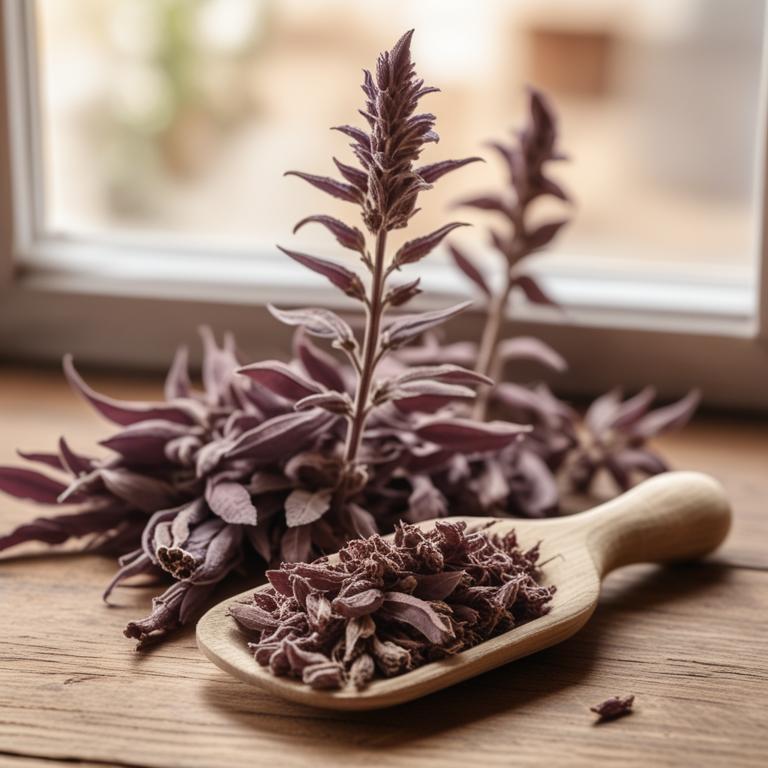
Overeating: The Causes and Medicinal Herbs for a Healthier You

Cholecystitis: Causes, Symptoms, Medicinal Herbs, and Therapeutic Herbal Preparations

Vomiting: Understanding the Causes and Natural Remedies with Medicinal Herbs and Herbal Preparations
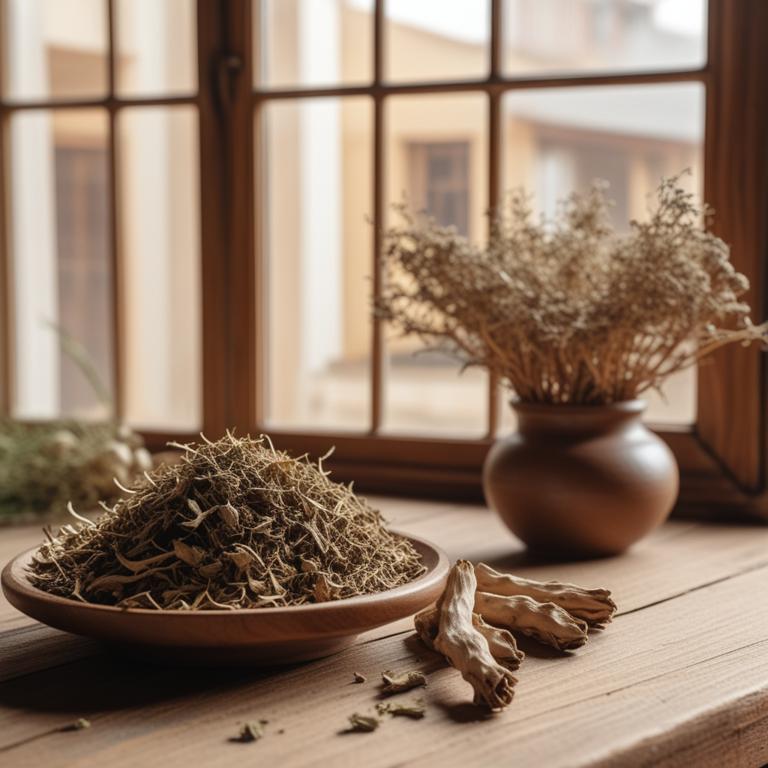
Causes, Symptoms, and Herbal Relief for Acid Reflux
